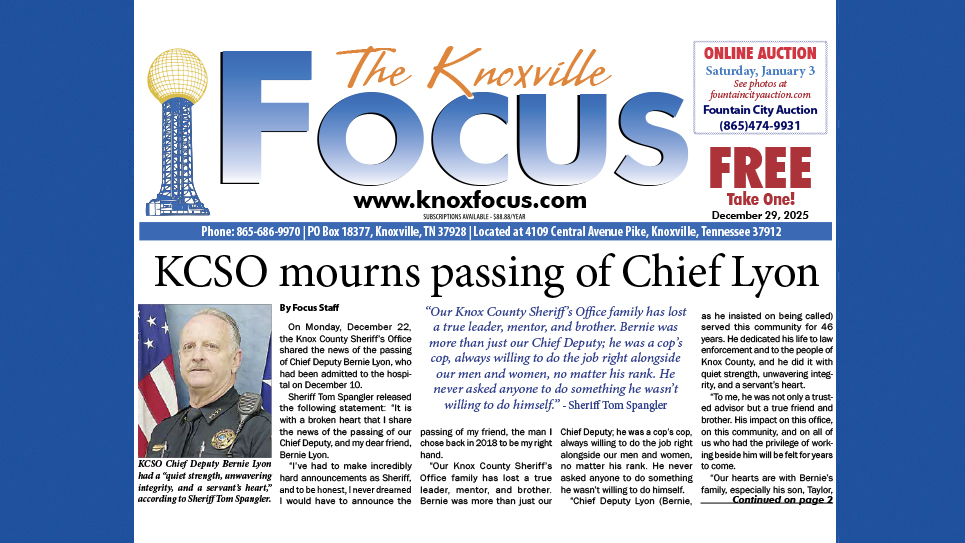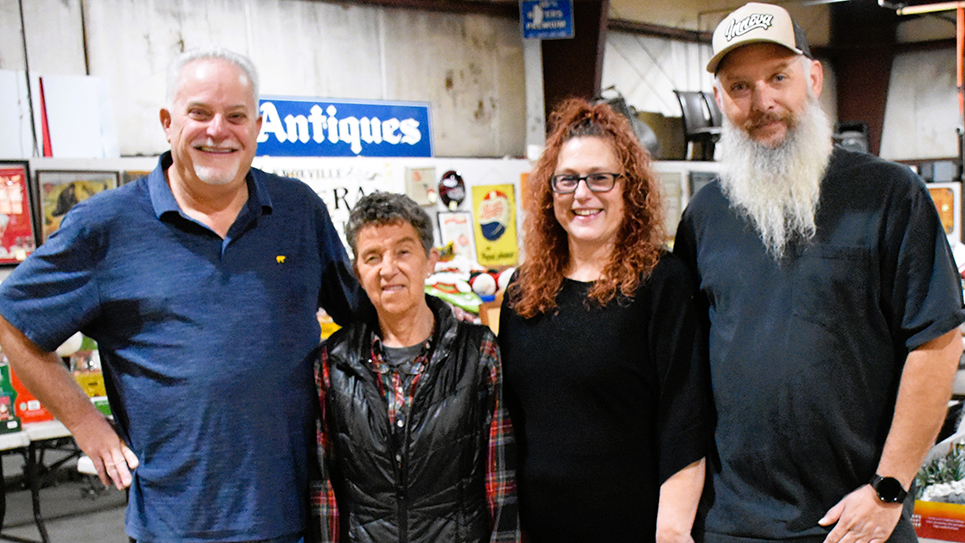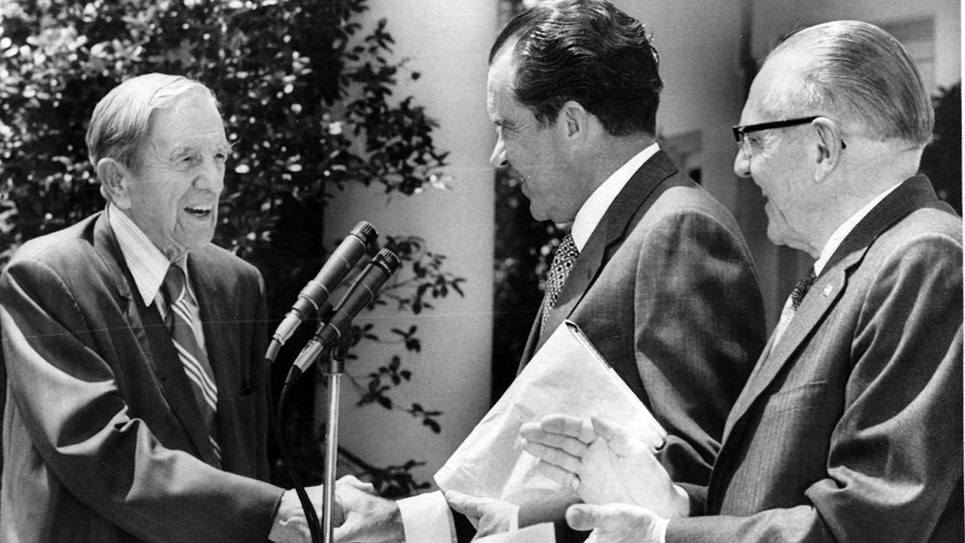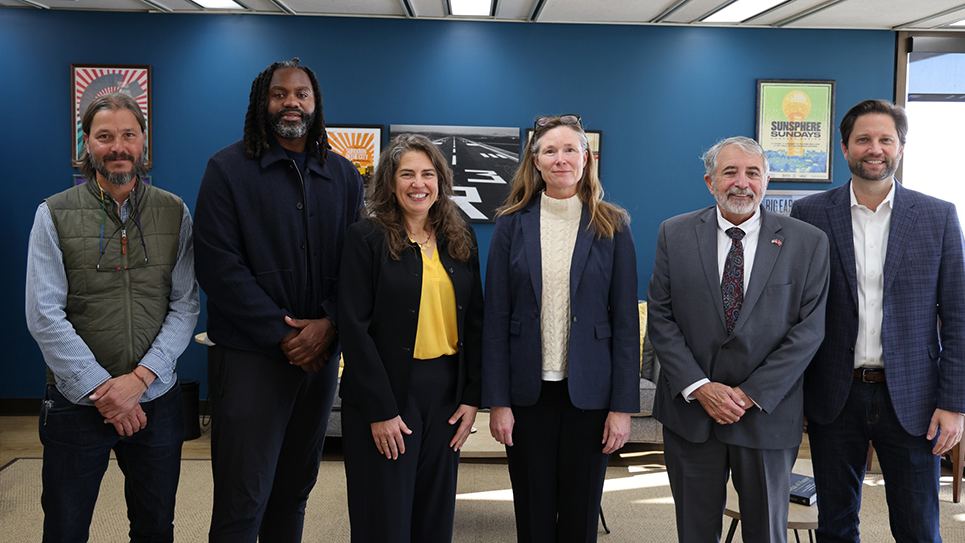And Madeline’s Meltdown
The first of two votes on the zoning and code process upheaval known as Recode in Knoxville City Council has happened. Recode was approved by council by a vote of 7 to 2 (Voting for Recode were: Stair, Saunders, McKenzie, Rider, Roberto, Welch and Wallace. Campen and Singh voted against.) on Tuesday, July 17 very late in the evening. That is not the biggest story of last week. The approval vote in council was expected and the only small surprise is that it was not unanimous. The biggest story was a press conference held by city Knoxville Mayor Madeleine Rogero that same morning. The press conference was an example of the Chicago political doctrine of socialist political radical Saul Alinsky. Alinsky was most famous for his short work called “Rules for Radicals” which was celebrated by Wellesley college student Hillary Clinton when she wrote in her 92-page senior thesis, “There Is Only the Fight . . . : An Analysis of the Alinsky Model”. What is possibly the best way to put Hillary’s philosophy is what she told the Black Lives Matter movement, saying, “I don’t believe you change hearts, you change laws, you change allocation of resources, you change the way systems operate.”
Welcome to Recode. The fifth rule of Alinsky’s “Rules for Radicals” is “Ridicule is man’s most potent weapon.” There is no defense. It’s irrational. It’s infuriating. It also works as a key pressure point to force the enemy into concessions.
Mayor Rogero used the fifth rule in her short press conference to say, “Those who are extreme critics of the process, everybody disagrees with this and that and that’s what we work through. There are some extreme critics of the process, they’re not the ones who have been in the meetings, the ones crafting the compromises. They’re not the ones who’ve been actually sitting down and debating what this is all about. It’s very easy to cast aspersions on a public process that as I’ve said is by its very nature is continuous, and I’ve said this often as the mayor the easiest thing is to criticize and to tear down, that is so simple and it is so lame. The hardest thing is to make something new happen. The hardest thing is to build community, and through this process we are building community, we are preparing our community for the future. We are holding on to that which we know that works and we care about, that we value, and we are also changing our regulations so that we can address the needs of others for that stuff that’s not working and we can address the future needs of our community and our children and grandchildren, our future generations, so those who have been at the meetings if they criticize something then I’m like okay I hear you, you know let’s talk about this, but those who don’t attend the meetings, who haven’t once picked up the phone to call me or to call council or to call Gerald (Gerald Green, executive director of Knoxville-Knox County Planning) about this process, but yet they write column after column after column that is negative and dogs this process, that’s lame. That’s really lame. Thank you.”
Do you know what is really lame? Using the Chicago socialist radical tactics of Saul Alinsky to ram through the Recode process and try to criticize factual reporting as well as editorial columns on Recode.
Mayor Rogero said in her press conference that, “Recode is the most thorough and transparent public engagement process Knoxville has ever had.” The truth is, in my opinion, that Recode has been one of the biggest political missteps in recent history.
Two days after Mayor Rogero’s press conference digital newspaper CompassKnox editor Jesse Fox Mayshark was on the Hallerin Hill radio program talking about the upcoming city election. Mayshark told Hill that there are 180,000 people in Knoxville, with 90,000 registered voters, and in the last mayor’s election 30,000 people voted. There were over 90 public meetings on Recode but 30 of those were stakeholders meetings. 1,800 people attended the Recode public meetings. That is one percent of the city population, two percent of the registered voters, and six percent of the voters who voted in the last mayor’s race. Is that anywhere close to being inclusive and transparent? Is that anywhere close to the mayor’s claim of being the “most thorough and transparent public engagement process Knoxville has ever had?”
The city polled a neighborhood that should have been favorable to Recode. Only 18% of the neighborhood approved of Recode. The poll was never released due to bad results. Is that being transparent?
Recode has used an Alinsky-style public relations campaign for over two years. Over and over citizens have been told that unless they went to the public meetings they have no say in Recode. No right to have an opinion. Only information from the city can be used to form an opinion. News reporters who have been to the meetings cannot be considered with their reporting. Only positive comments about Recode can be considered. What Rogero inferred is that the media cannot be trusted unless they stick to the city administration’s script that Recode is wonderful and won’t raise your taxes or change the use of your property. But Gerald Green of the planning commission has repeatedly said that all properties will conform their use to Recode. So which is it? Recode is anything but transparent. They are talking out of both sides of their mouth.
So what was it like to attend those public Recode meetings? It was obvious Recode wasn’t ready to be voted on as they spent hours fixing it on the fly. Three to four hours of PowerPoint presentations to have ten to twenty minutes for the public to ask questions which were often dismissed by Knoxville planning commission representatives.
An example was the Deane Hill Recode public meeting where a gentlemen who works at UT asked Knoxville-Knox County Planning head Gerald Green how Recode would affect quality of life in Knoxville. Green dismissed the question with a nonsensical statement of how the quality of life was good in West Knoxville but not as good in East Knoxville and Recode would somehow change that. You can see that public meeting here: https://vimeo.com/297785241 (minute 38:35).
From the very beginning two and a half years ago Recode has been based on an inaccurate position that the zoning codes in Knoxville have not changed in fifty years. Even last week local television stations were saying that same incorrect meme. In last week’s press conference Mayor Rogero said, “The current code was adopted more than 50 years ago. It has been amended, added to and tweaked ever since.” So the Mayor herself finally acknowledged that the basis on which Recode was built is false.
The next big story of last week was during the city council meeting on the vote on Recode when Knoxville resident Constance Every spoke to the issue of Recode and brought down the house. Every told the council that there was no way she would be convinced that the planning commission and council had combed through fifty years of documentation of blueprints, maps, and other information on zoning in two years. Every said, “what this whole agenda hides behind is extending downtown Knoxville and being deceptive about it. There’s nothing bad about that but don’t lie about it, tell the truth about it…Recode is not the answer right now.”
The next Knoxville City Council meeting is July 30. Council will have the second of two council votes on the text of Recode and the first of two votes on the Recode zoning map. Last week I believe the mayor and city council ignored state law and the city charter by not sending the amended Recode text back to Knoxville-Knox County Planning to be approved. State law requires that if any substantive changes occur in council by amendment it must go back to the planning commission for their approval. Council added all city commercial property to the Hillside and Ridgetop codes in Recode, which could be construed as a taking and could result in many lawsuits for restraint of trade and tortious interference. Council also excluded Accessory Dwelling Units for established neighborhoods like Sequoyah Hills and West Hills. Those are enormous substantive changes. As council and the mayor have done several times before in their obsession to approve Recode before early voting for the city election they have again ignored the people they represent, proper procedure and possibly the law.
Will the real fate of Recode be decided in court? How many laws can be ignored? Have Sunshine Law violations occurred? Planning violations? And now procedural violations? The lawsuits that will come from this will likely be paid for by the taxpayers. While all of this happens Mayor Rogero keeps telling us Recode is a living document that can be changed and amended.
Then why the mad rush to approve it before the upcoming city election?
Note: Find the current zoning map and the proposed Recode zoning map below. Take a look and you decide if the maps have changed.






